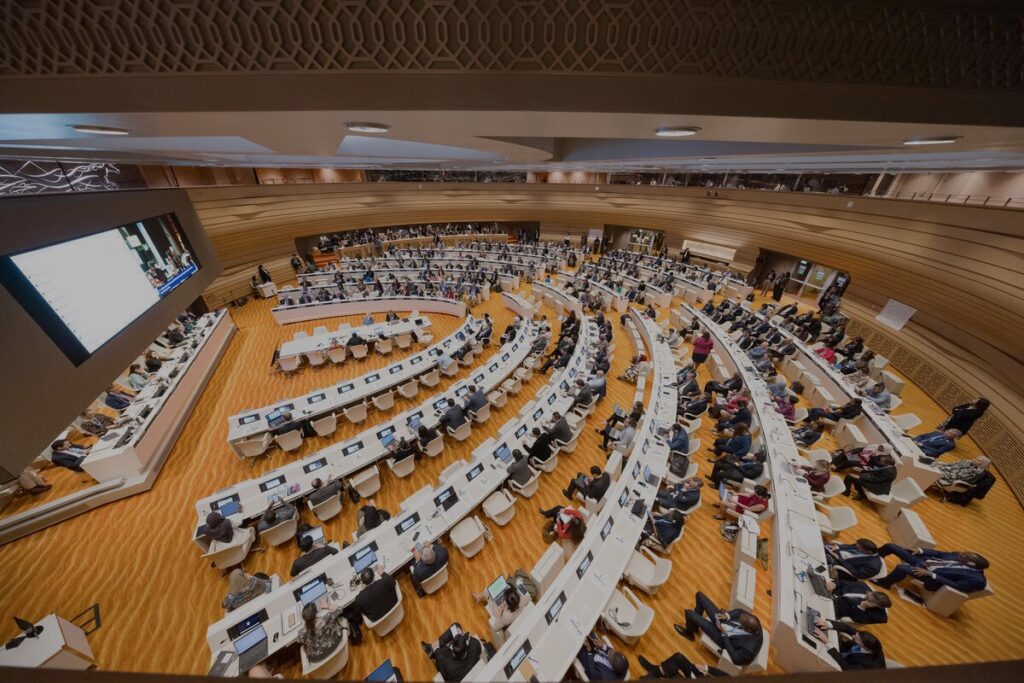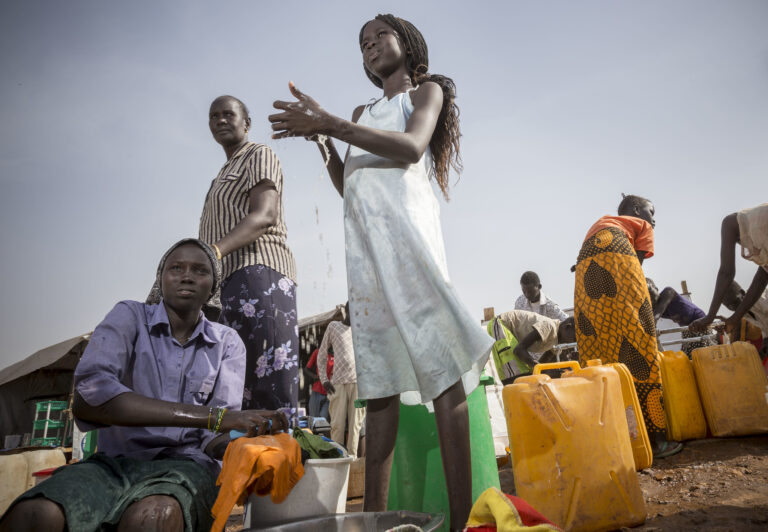The World Health Assembly (WHA) has agreed on a global action plan on climate and health in a 109-0 vote on Tuesday in Geneva, following almost a year of preparatory work and two days of negotiations.
The WHA is the decision-making body of the World Health Organisation, with policies decided by member states in yearly meetings.
Various oil producing countries, including Saudi Arabia, Bahrain and Venezuela had requested the postponement of the plan’s adoption.
The WHA’s first global action plan, a non-legally binding text, calls on member states to better integrate health into their climate policies by, for example, including health in their national climate commitments under the Paris Agreement to limit global warming to 1.5℃.
The Global Climate and Health Alliance (GCHA), a network of 200 organisations representing health workers, has welcomed the plan’s adoption while criticising the omission of the impact of fossil fuels on people’s health.
Dr Jeni Miller, the group’s executive director, called in a statement on government to “recognise and respond to the profound role that climate change and its primary driver, fossil fuels, now play in determining health outcomes for people around the world.”
Rosie Tasker, clean air liaison at the GCHA said that “reference to fossil fuels were a red line (…) for certain member States.”
“These were ultimately removed in order to facilitate the adoption of the resolution”, she added.
Other countries were keen to halt any further delays to the plan’s adoption.
However the Peruvian representative, speaking on behalf of dozens of other countries, pointed out the urgent need to take timely action.
“Climate change poses an immediate and escalating threat to public health, including through exacerbating respiratory illnesses, health related conditions and the spread of infectious diseases,” he said.
This year’s World Health Assembly was characterised by discussions around financial challenges arising from the withdrawal of the United States, the organisation’s biggest contributor, in January.
Tasker said the financial viability of the plan was a “major contentious point” with several countries raising concerns about the ability of the organisation to finance the implementation of the plan.
This story has been updated.




